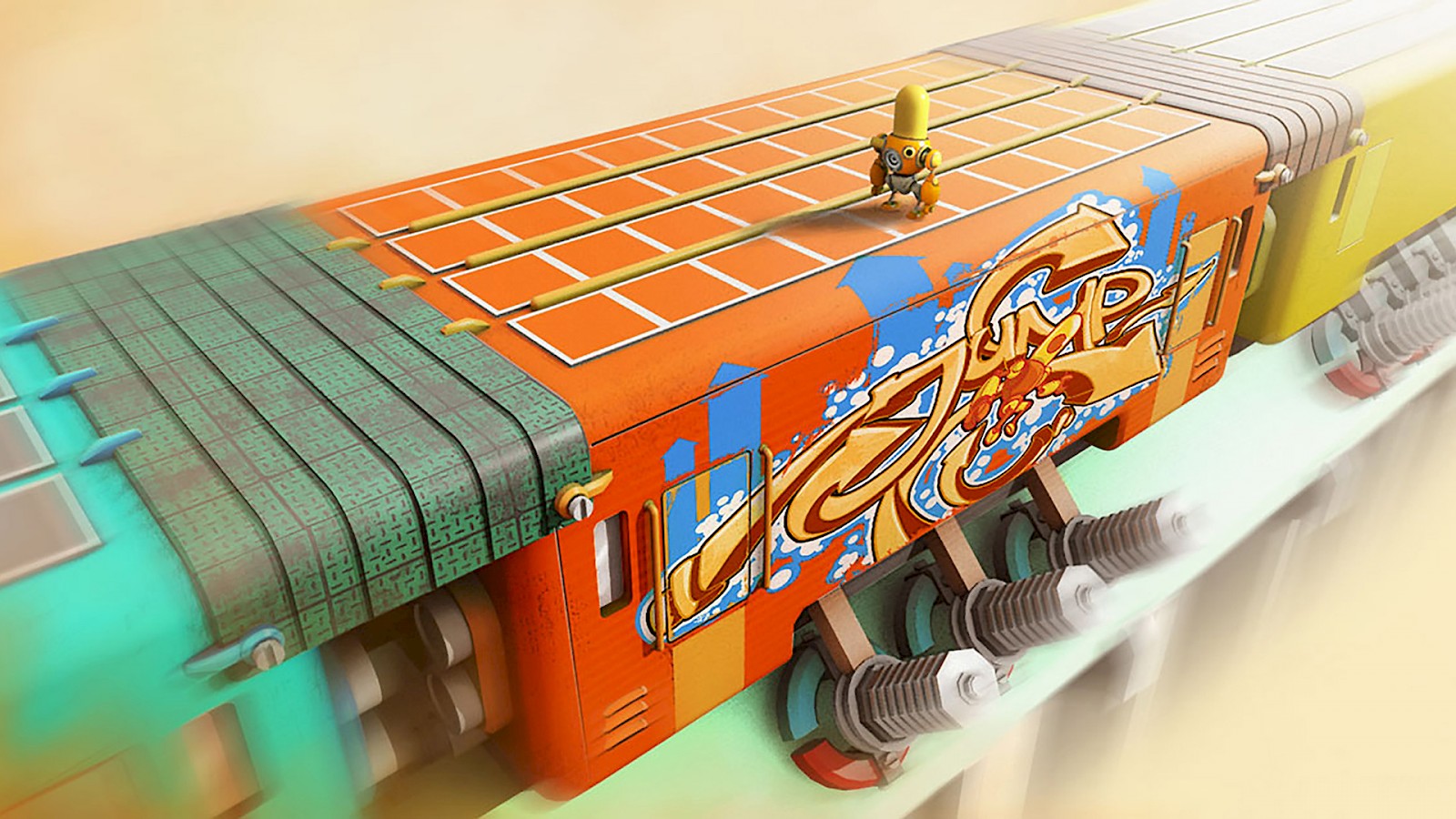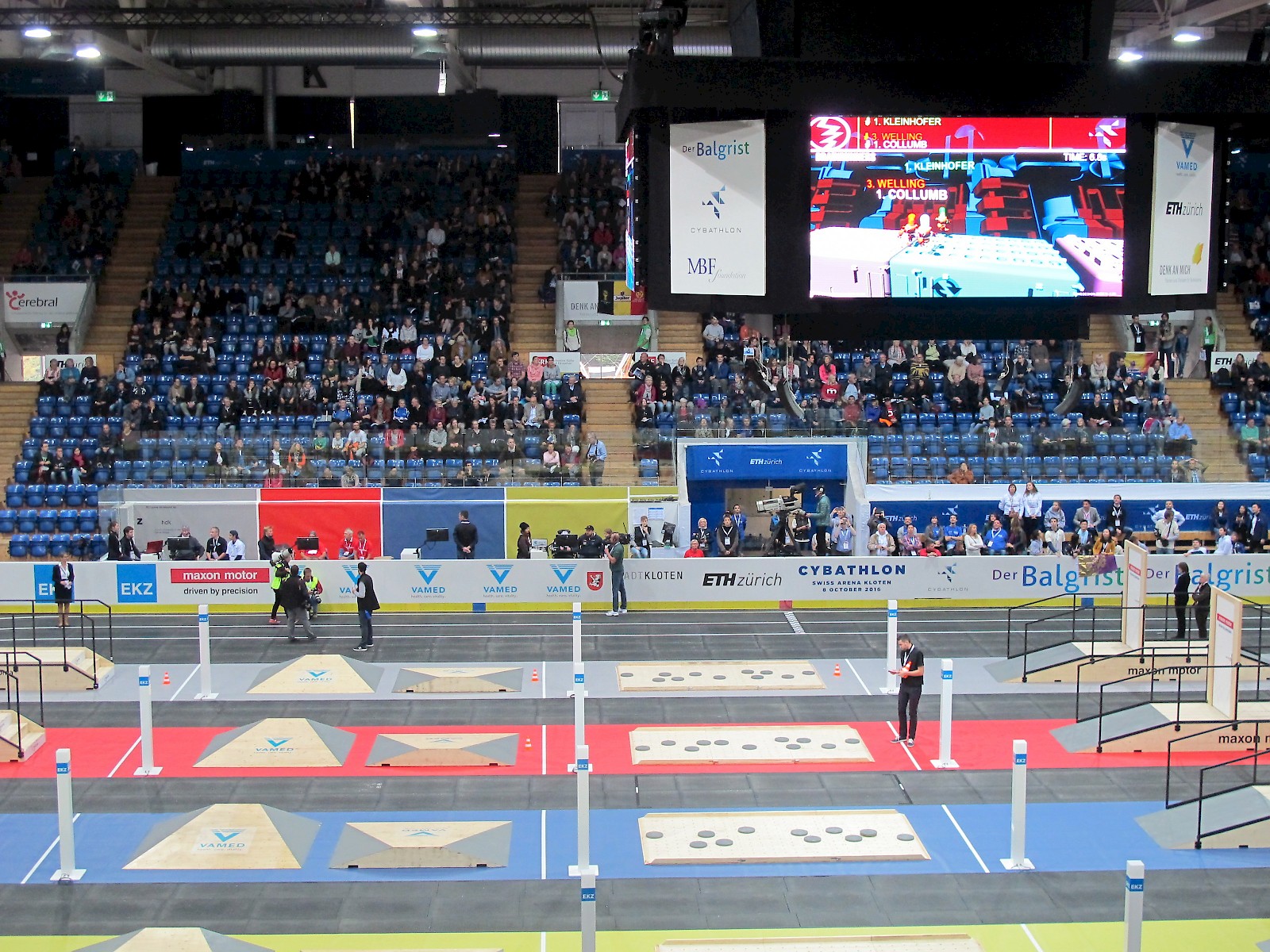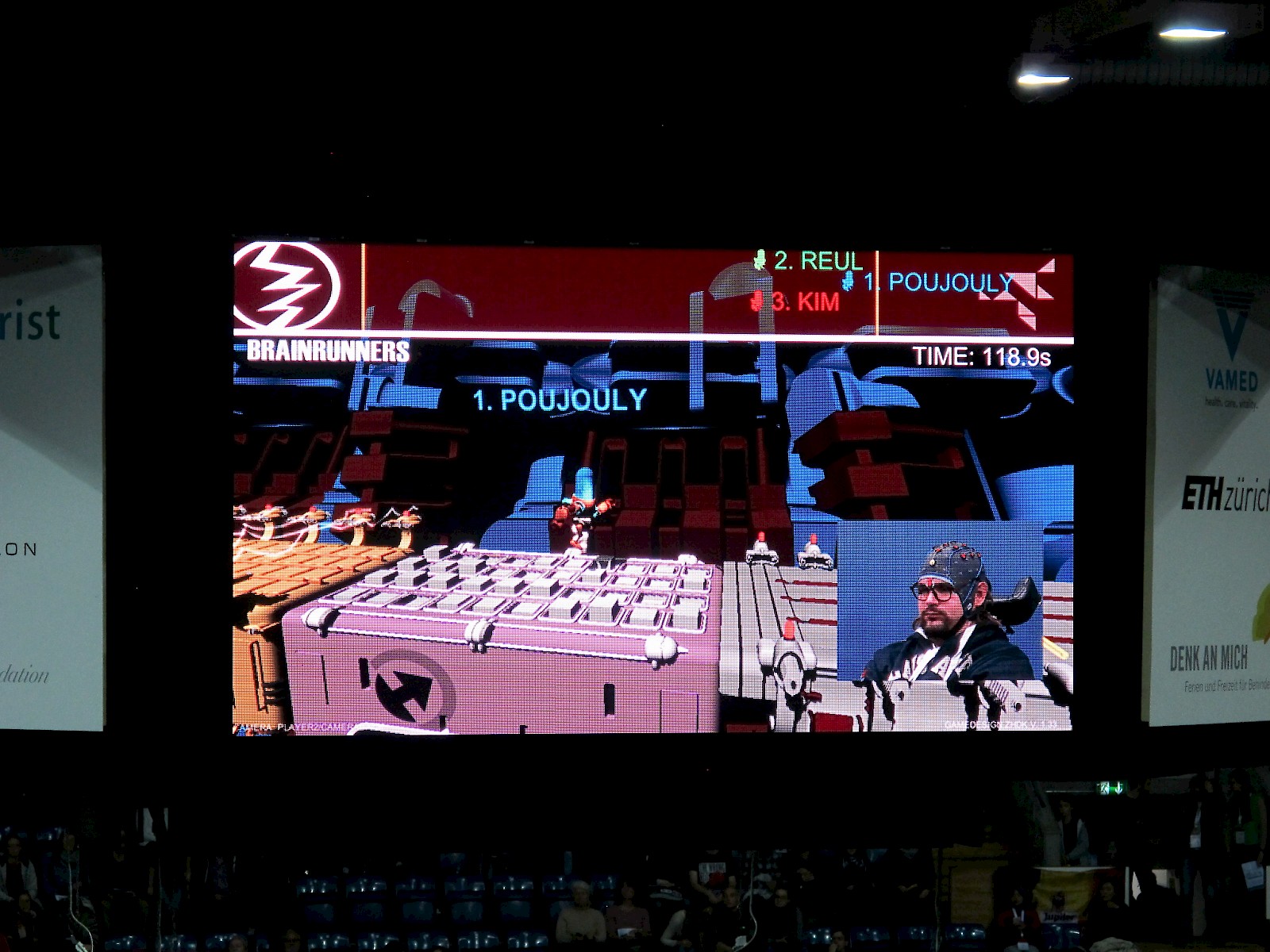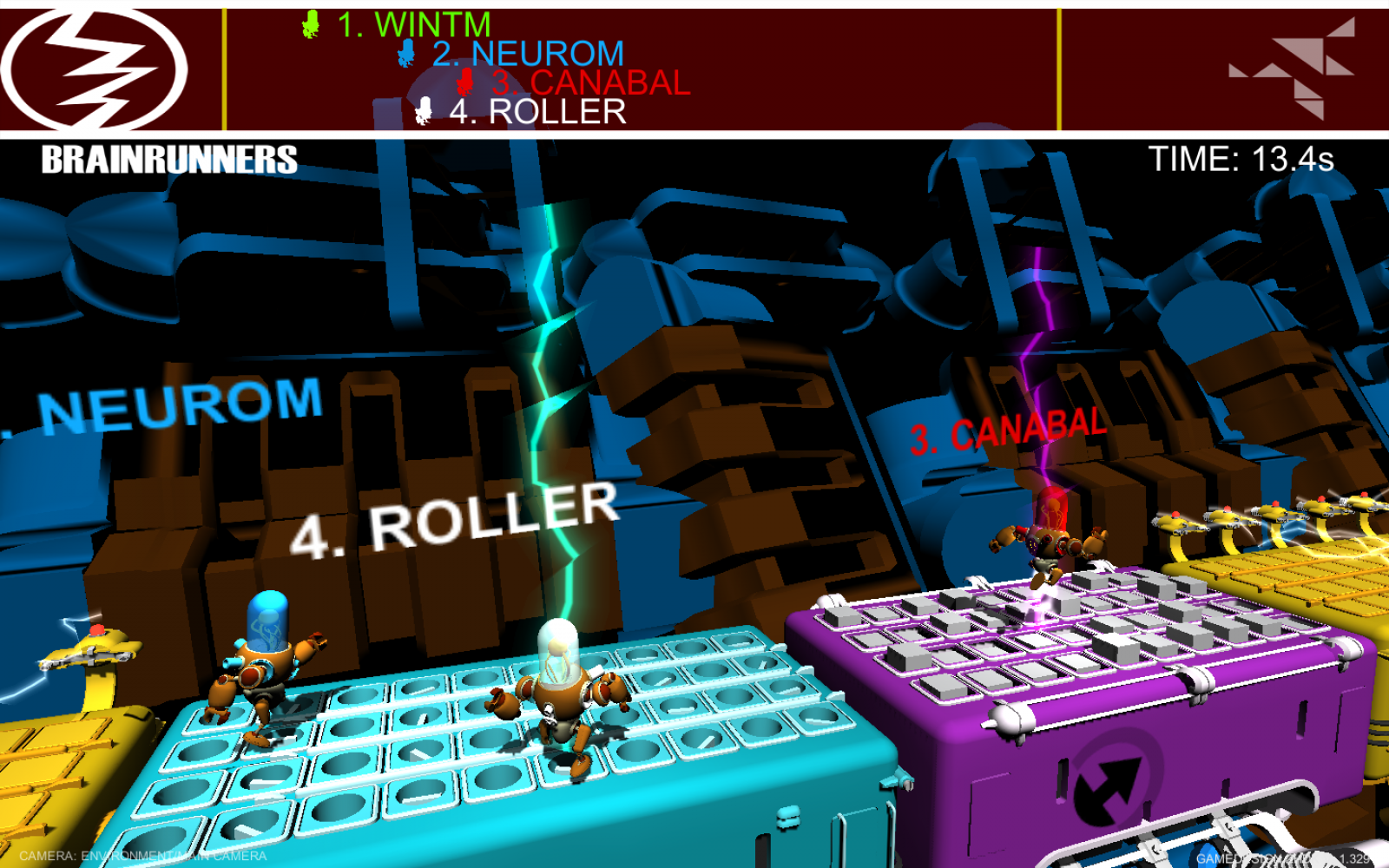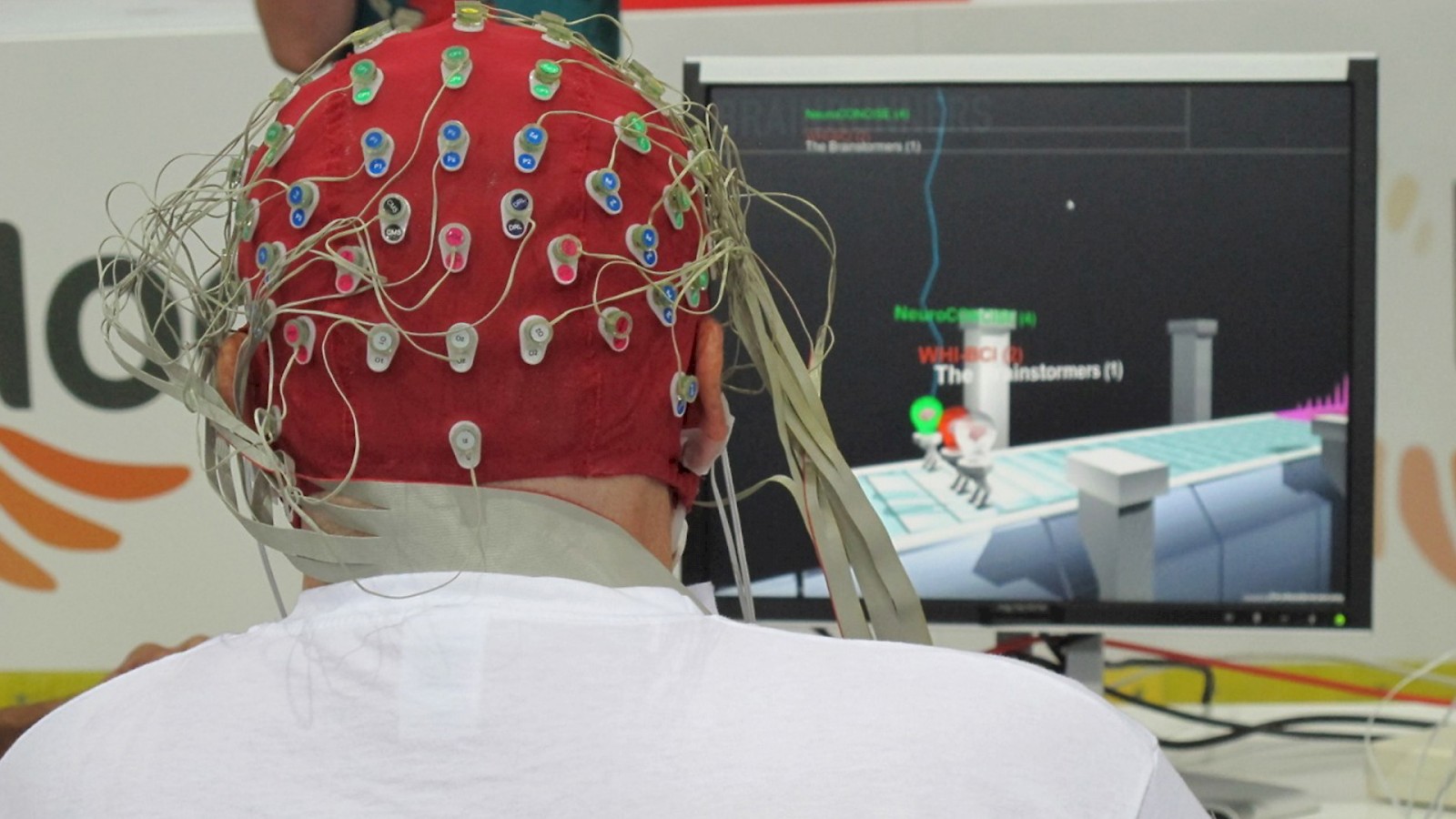Cybathlon – Brain Runners
ETH Zurich organised the first Cybathlon in October 2016 against the atmospheric backdrop of a packed-out SWISS Arena in Kloten. Almost 70 teams from 25 countries took part in a major competition in which contestants with severe physical disabilities went head to head in six demanding disciplines as pilots of their technical assistant systems. The contestants overcame obstacles in innovative wheelchairs, showcased their agility using state-of-the-art prosthetic legs and arms and navigated a Parcours route using robotic exoskeletons.
Swiss Radio and Television (SRF) broadcasted the Cybathlon live, with around 150 media representatives reporting on the event around the world. The current plan is to hold a second Cybathlon in 2020, by which time the event is due to tour the globe.The Subject Area in Game Design is playing a key role in the Cybathlon with its own research project: in one of the six disciplines, participants compete in a race as part of a mind-controlled racing game where they control the runners by means of brain-computer interfaces (BCIs).
The BCI pilots have severely inhibited or entirely non-existent motor functions from the neck upwards due to a spinal cord injury, a neurological disease or a similar disability. The pilots therefore guide their characters to the finish line using brain signals that are picked up via electroencephalography (EEG) or near-infrared spectroscopy (NIRS). In the Brain Runners game, the pilots transmit cerebral signals at the right moment in order to accelerate their avatars in the race or to help them overcome obstacles. Incorrect signals result in deductions.The race thus simulates how BCI support devices, which need to prove their reliability and accuracy, will be controlled in future.
